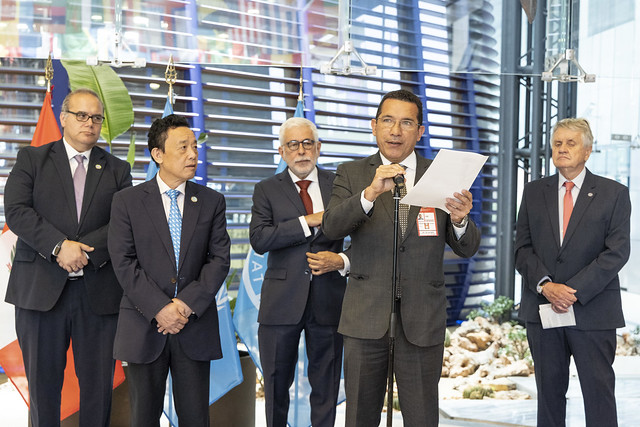ITREALMS ... making leadership SENSE with digital news!
The 64th Council Meeting of the Global Environment Facility (GEF), ended in Brazil with dedicated grant to confront biodiversity loss, climate change, pollution, and strains on land and ocean health, reports ITREALMS. Also, FAO and partner agencies tasked with leading $115 million Clean and Healthy Oceans Programme to ensure adequate redeployment, accountability and transparency.
ITREALMS gathered that the groundbreaking partnership with ADB, CAF, EBRD and IOC-UNESCO, is aimed at addressing agricultural, municipal, and industrial pollution from land-based sources that harm coastal environments.
The Food and Agriculture Organization of the United Nations (FAO), along with four partner agencies, has been tasked with leading the Clean and Healthy Oceans Integrated Program, a source-to-sea initiative that will direct up to $115 million in grants to help countries curb land-based pollution of coastal environments and Large Marine Ecosystems.
They made this decision at the 64th Council Meeting of the Global Environment Facility (GEF), a family of funds dedicated to confronting biodiversity loss, climate change, pollution, and strains on land and ocean health.
FAO will co-lead the program together with the Asian Development Bank (ADB), the European Bank for Reconstruction and Development (EBRD) and the Development Bank of Latin America (CAF), in a strategic partnership with the Intergovernmental Oceanographic Commission of UNESCO (IOC-UNESCO).
Oceans have lost nearly 2 percent of their oxygen since the 1950s, resulting in “dead zones” – known as hypoxia – that cannot support marine life. Pollution from land-based sources, including the overuse of fertilizer, organic waste from livestock, and untreated municipal and industrial wastewater, typically drive hypoxia worldwide.
Land-based pollution puts marine biodiversity, ecosystems, coastal economies and industries reliant on fisheries and the oceans’ resources at risk. Under long-term hypoxia, coral reefs may experience mass mortalities, valuable coastal fish species migrate to higher oxygen areas, and the growth and reproduction rates of many marine species plummet.
The Clean and Healthy Oceans Integrated Program aims to curb land-based pollution of our oceans through policy and regulatory innovation, infrastructure investments, and nature-based solutions. It will also map land-based sources of ocean pollution to better understand the impacts on hypoxia and apply ocean science to develop solutions that improve human and ocean health.
Specifically, the program aims to improve sustainable practices on 200,000 hectares of landscapes and 14.3 million hectares of marine habitats (an area roughly the size of all of Thailand's cultivable land). Additional aims include reducing pollution and improving management in more than three Large Marine Ecosystems and mitigating 5.6 million metric tons of greenhouse gas emissions.
This is the first time that FAO, ADB, CAF, EBRD and IOC-UNESCO have teamed up under one program to deliver global environmental benefits.
The partnership leverages the global and regional leadership of each organization in reducing ocean pollution from the source. For example, the program will benefit from FAO’s expertise and convening power in the agricultural, fertilizer, livestock, and fisheries sectors. It will also build on initiatives and the investment portfolios of regional multilateral development banks on the Blue Economy, the Green Economy, marine conservation, and wastewater infrastructure. The global ocean science and services of IOC-UNESCO will bolster the scientific basis of the program and strengthen linkages to the UN Decade of Ocean Science for Sustainable Development (2021-2030).
Short URLs:
goo.gl,
mcaf.ee,
cli.gs



No comments:
Post a Comment